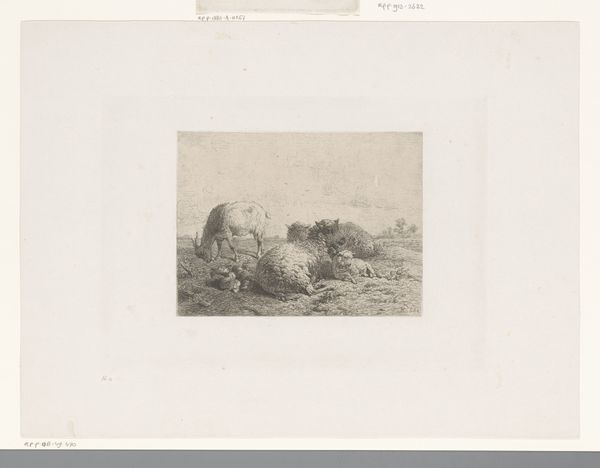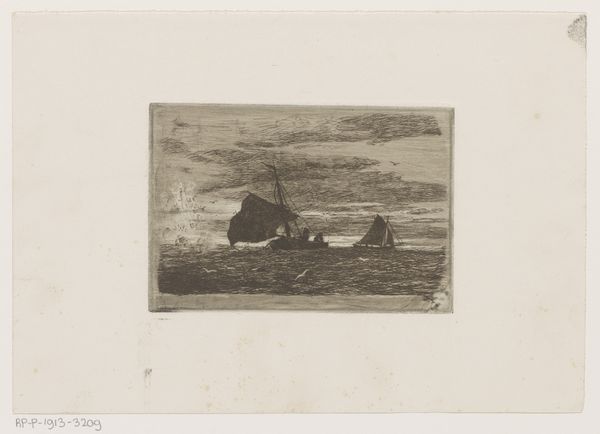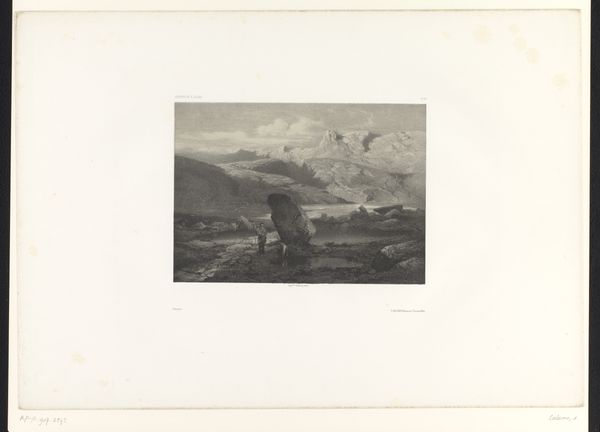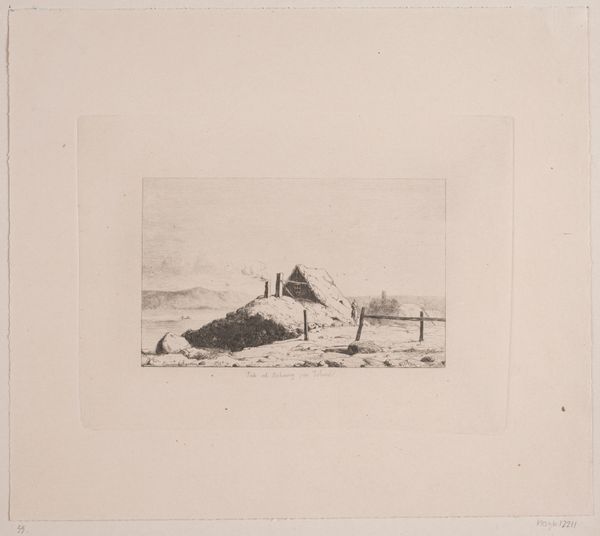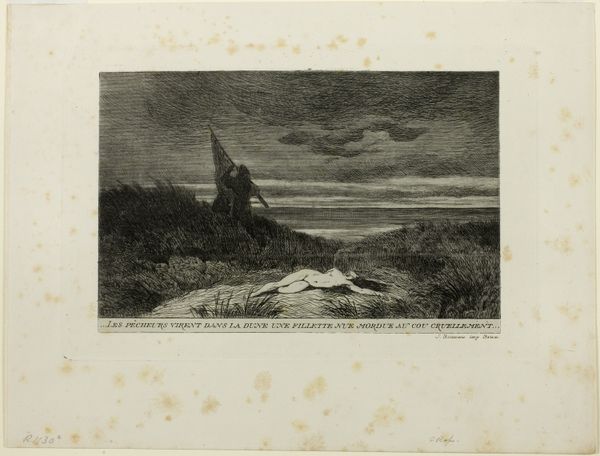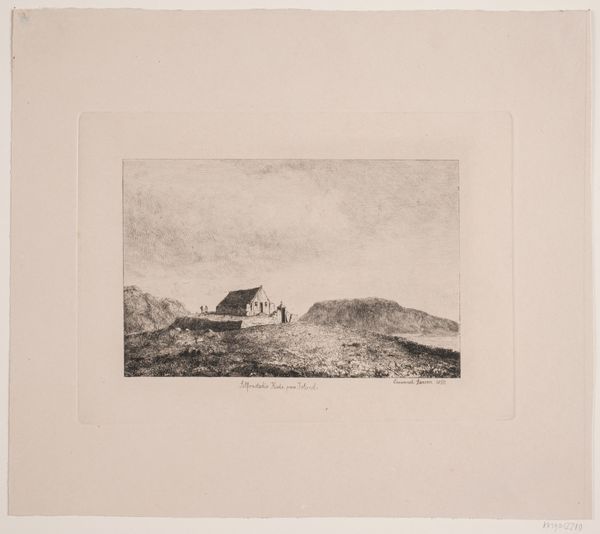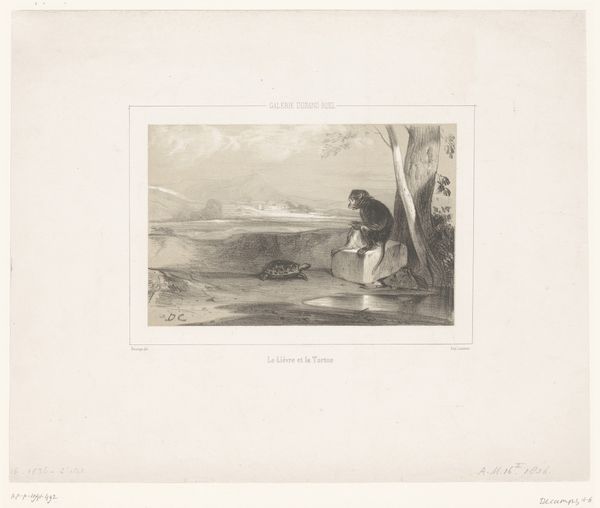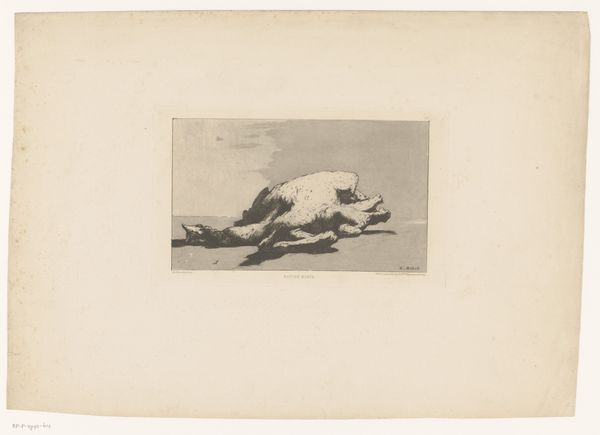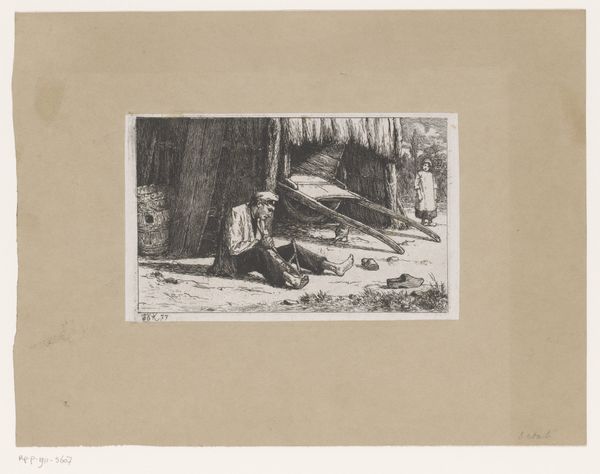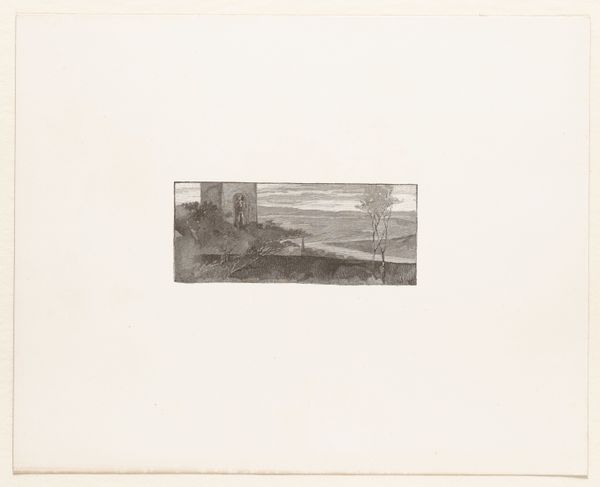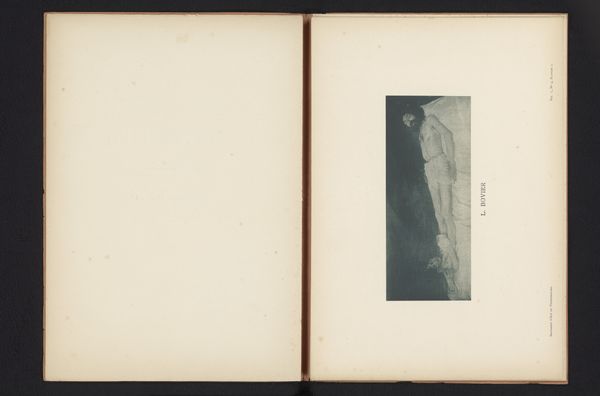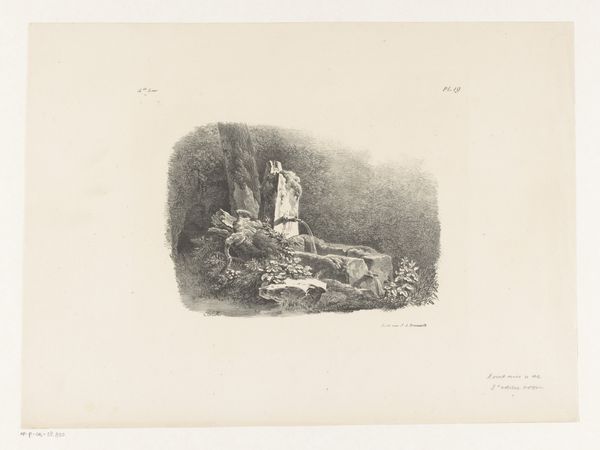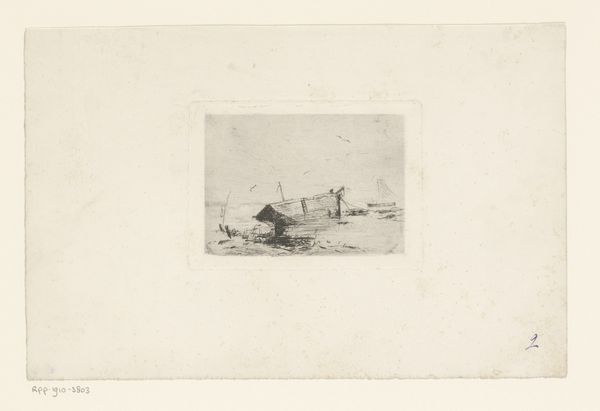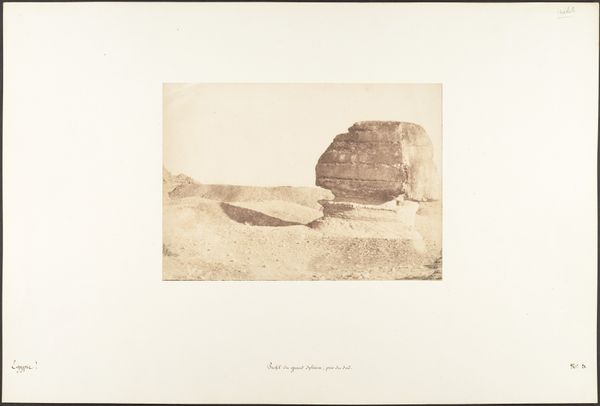
print, etching
# print
#
etching
#
landscape
#
pencil drawing
#
modernism
Dimensions: height 110 mm, width 150 mm
Copyright: Rijks Museum: Open Domain
Curator: This is Frank Short’s etching from 1936, titled “Hay Bales on Wagons at the Bank of the Thames.” Editor: The composition immediately strikes me. It’s melancholic, the almost monochromatic scene anchored by the large hay bales reflecting softly on the water. Curator: The etching process itself is significant. Short was a master of aquatint and mezzotint, and here, the subtle tonal variations achieved through acid-etching the plate are really beautiful. Think about the physical labor and chemical processes involved in creating such nuanced atmospheric effects. Editor: Precisely. Note how the horizontality of the bales and river are interrupted by a faint rainbow and that solitary, vertical tree—a satisfying play of geometric forms against a very soft texture. Curator: Considering Short's position within the Arts and Crafts movement, he elevated printmaking. These prints became accessible art objects. It also points to a romantic view of rural labour during increasing industrialisation. Editor: I see what you mean. Looking closely at the technique, you can see that short deliberately creates texture in the sky; almost rough hatching and shading. The subtle manipulation of tone guides the viewer's eye, establishing an internal rhythm to the scene. Curator: Short was part of a generation of artists trying to revalue hand production. They are rejecting industrial norms even while depicting landscapes potentially affected by modernization. It raises questions of labour value. What kind of labour goes into creating art that idealizes labor? Editor: It is almost as though the print contains an argument of its own. For all it reflects industrial themes, it has that solid and considered pictorial structure you would associate with high art, and is divorced from simple observation. Curator: Yes, the artwork's existence prompts inquiry into artistic, social, and even economic realms! Editor: An intriguing piece – so much within this subdued palette and simple geometry.
Comments
No comments
Be the first to comment and join the conversation on the ultimate creative platform.
